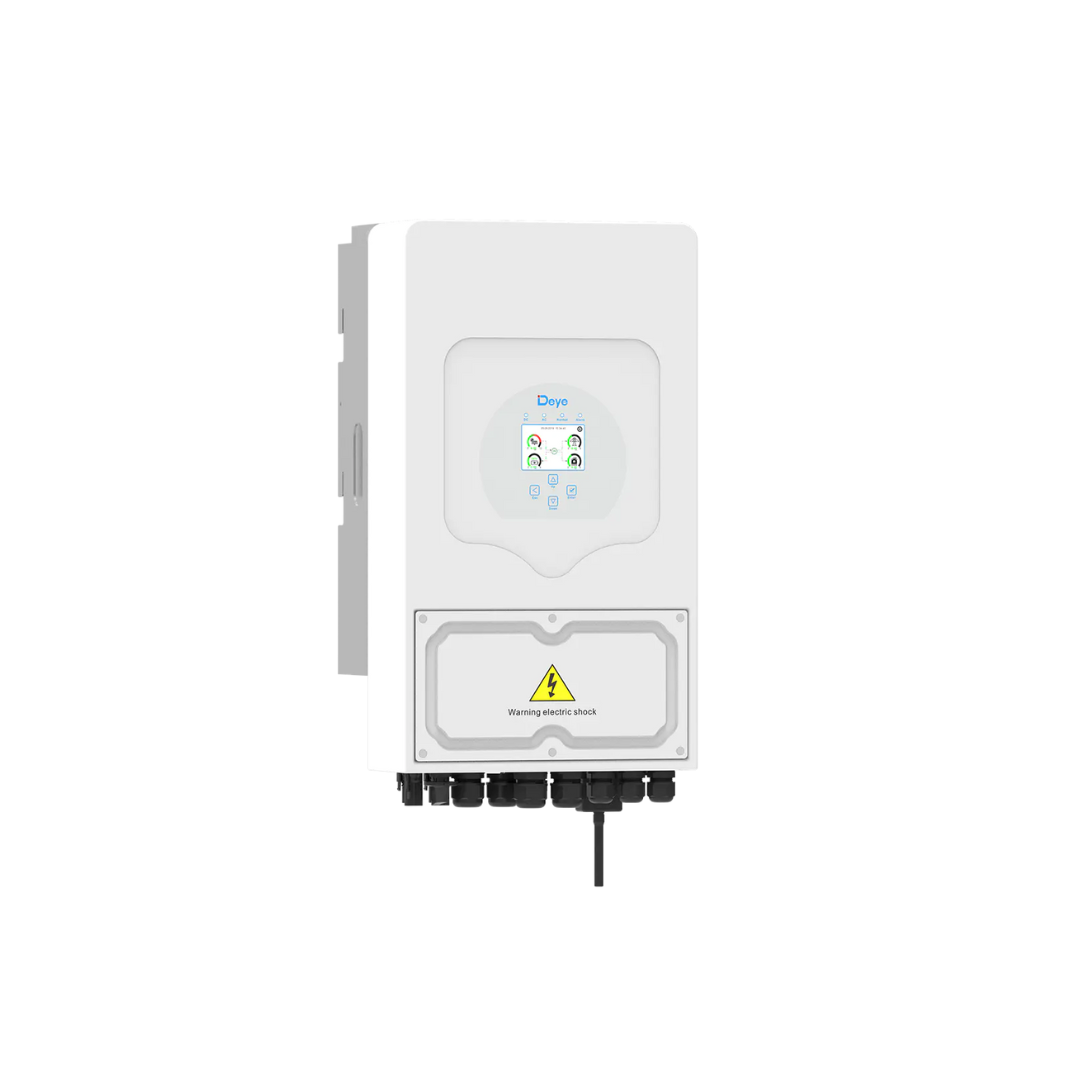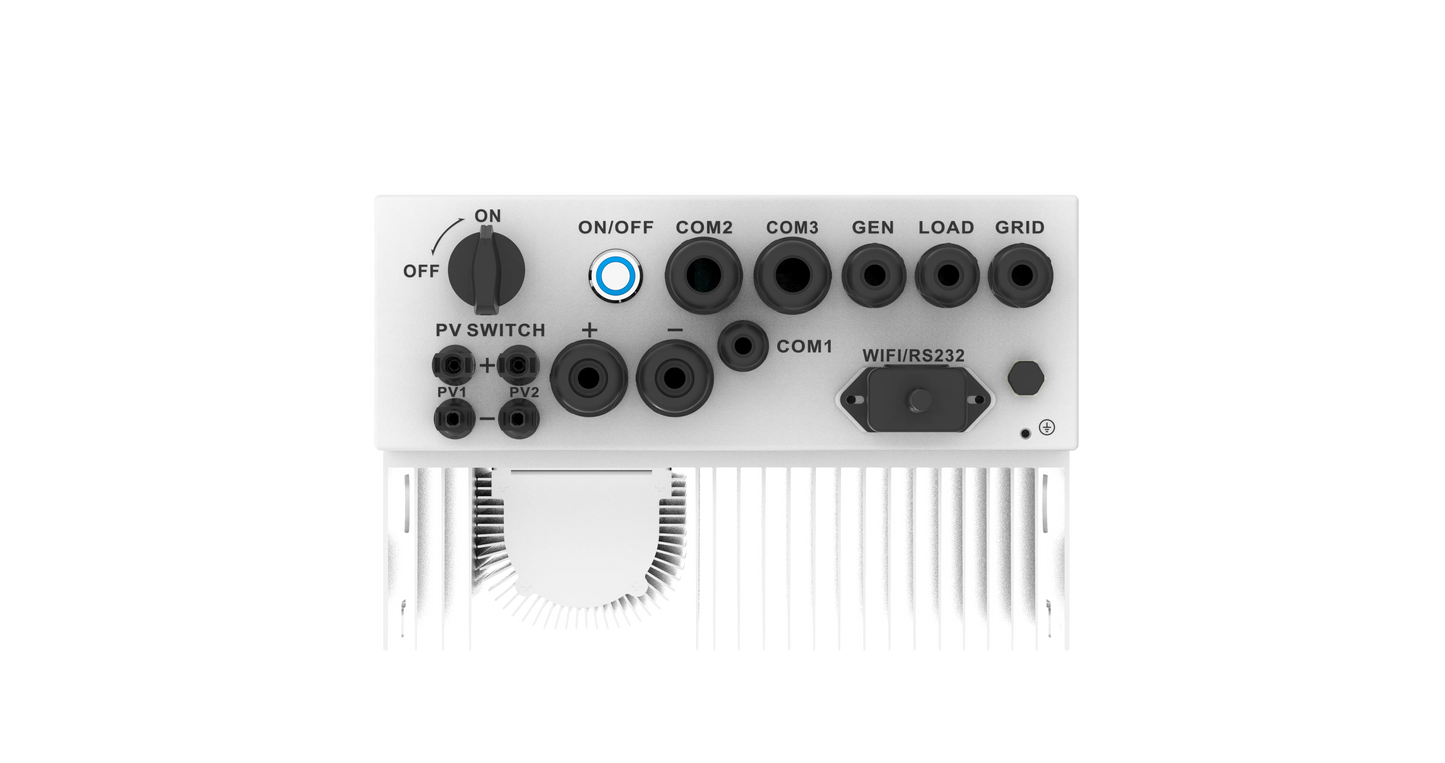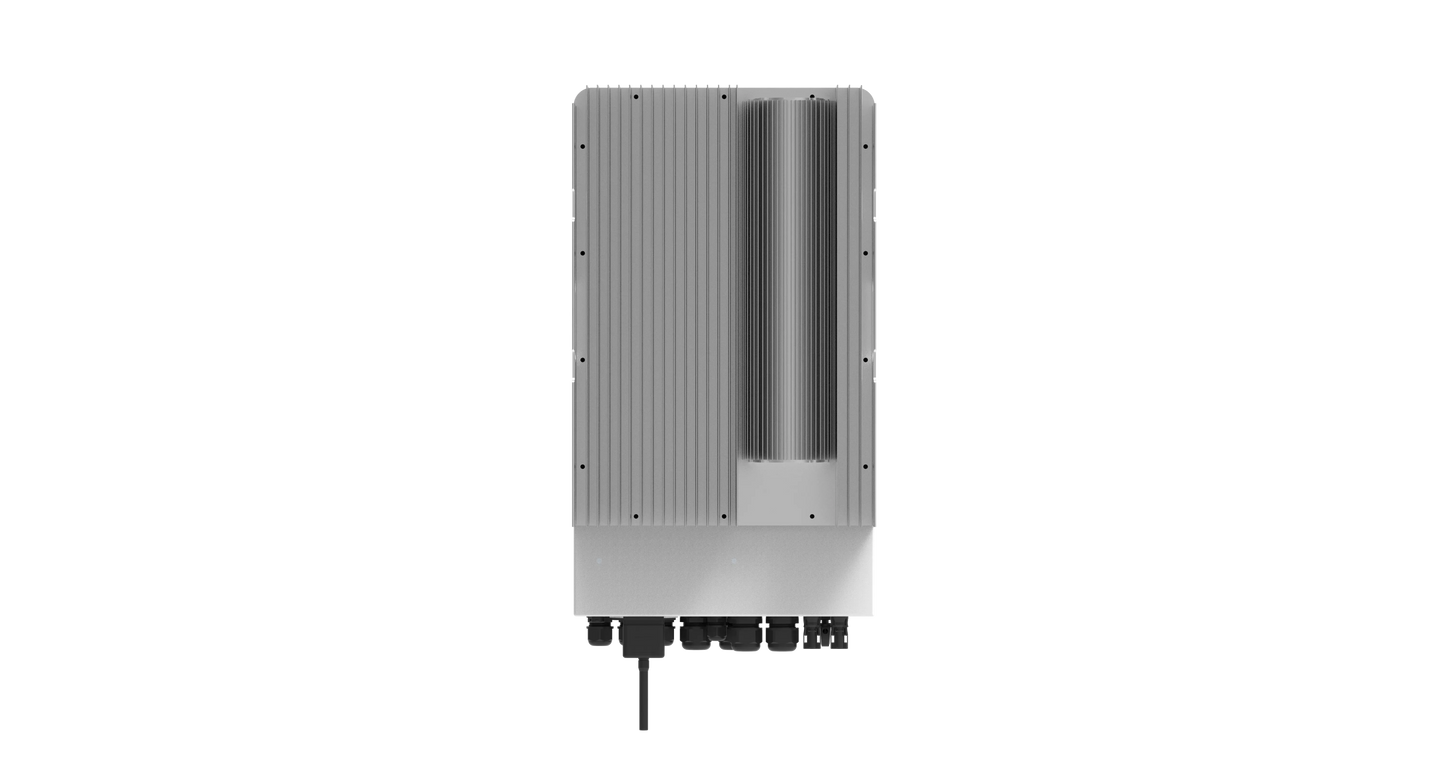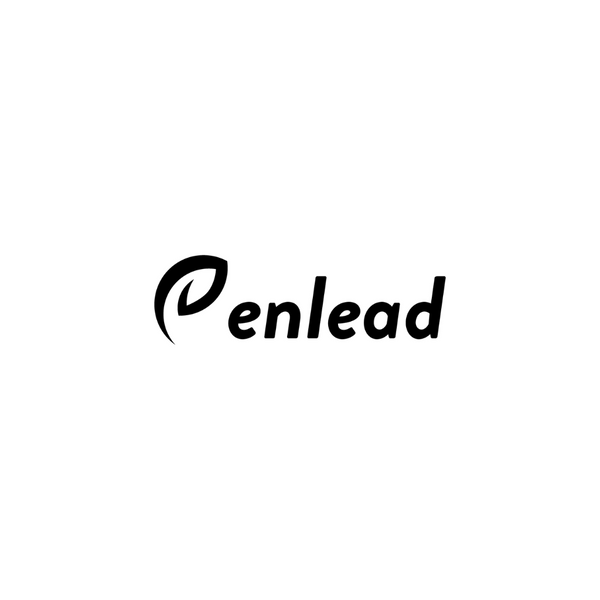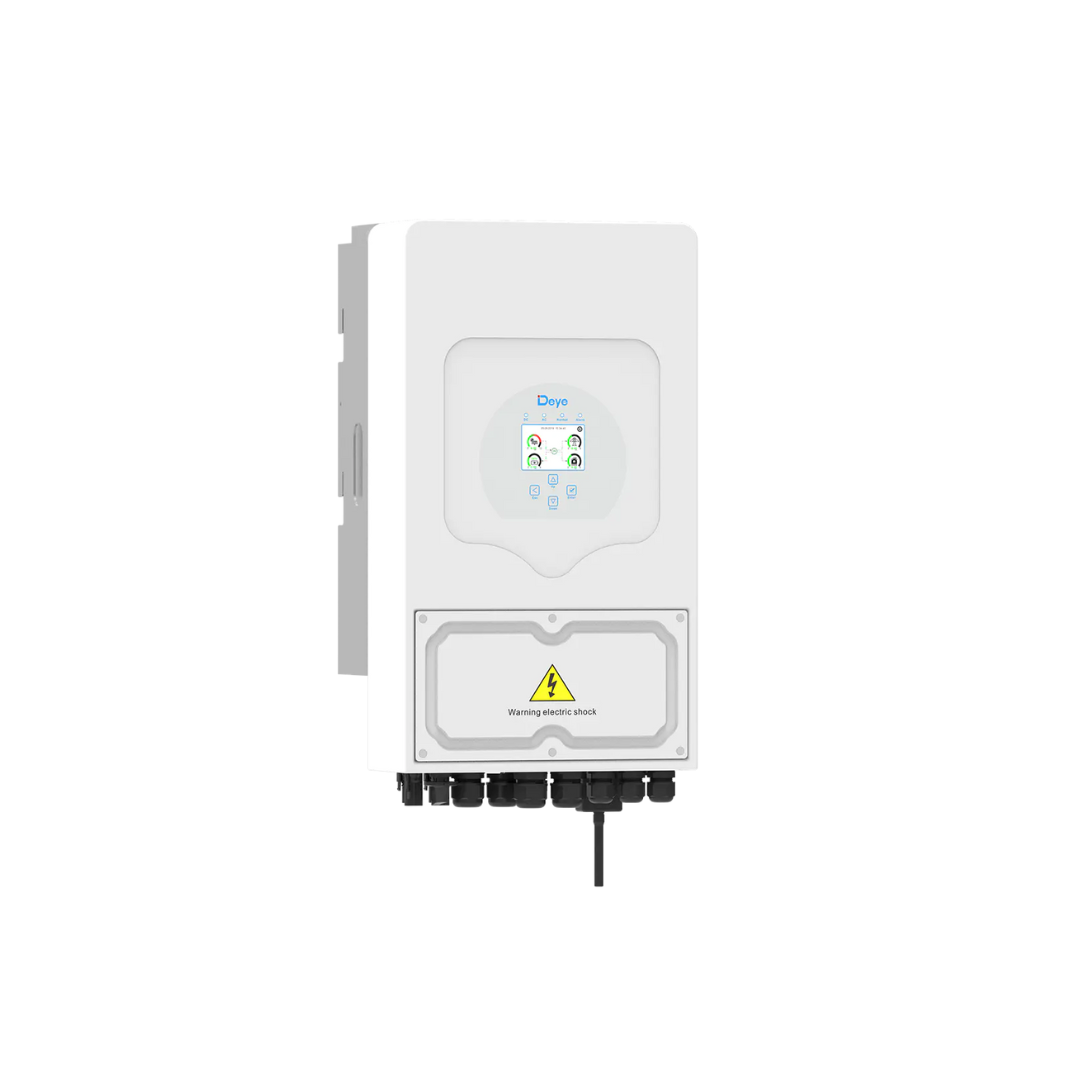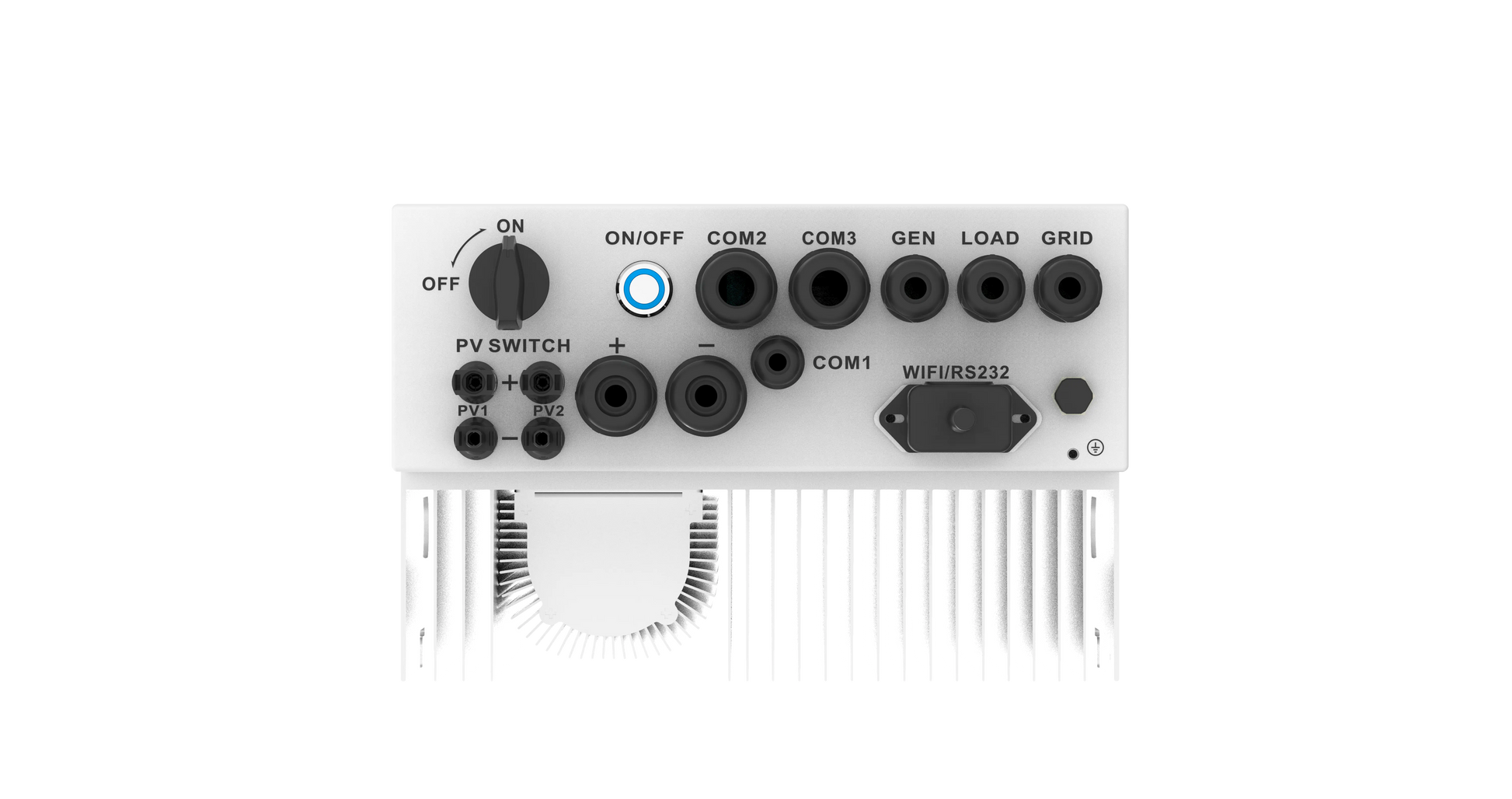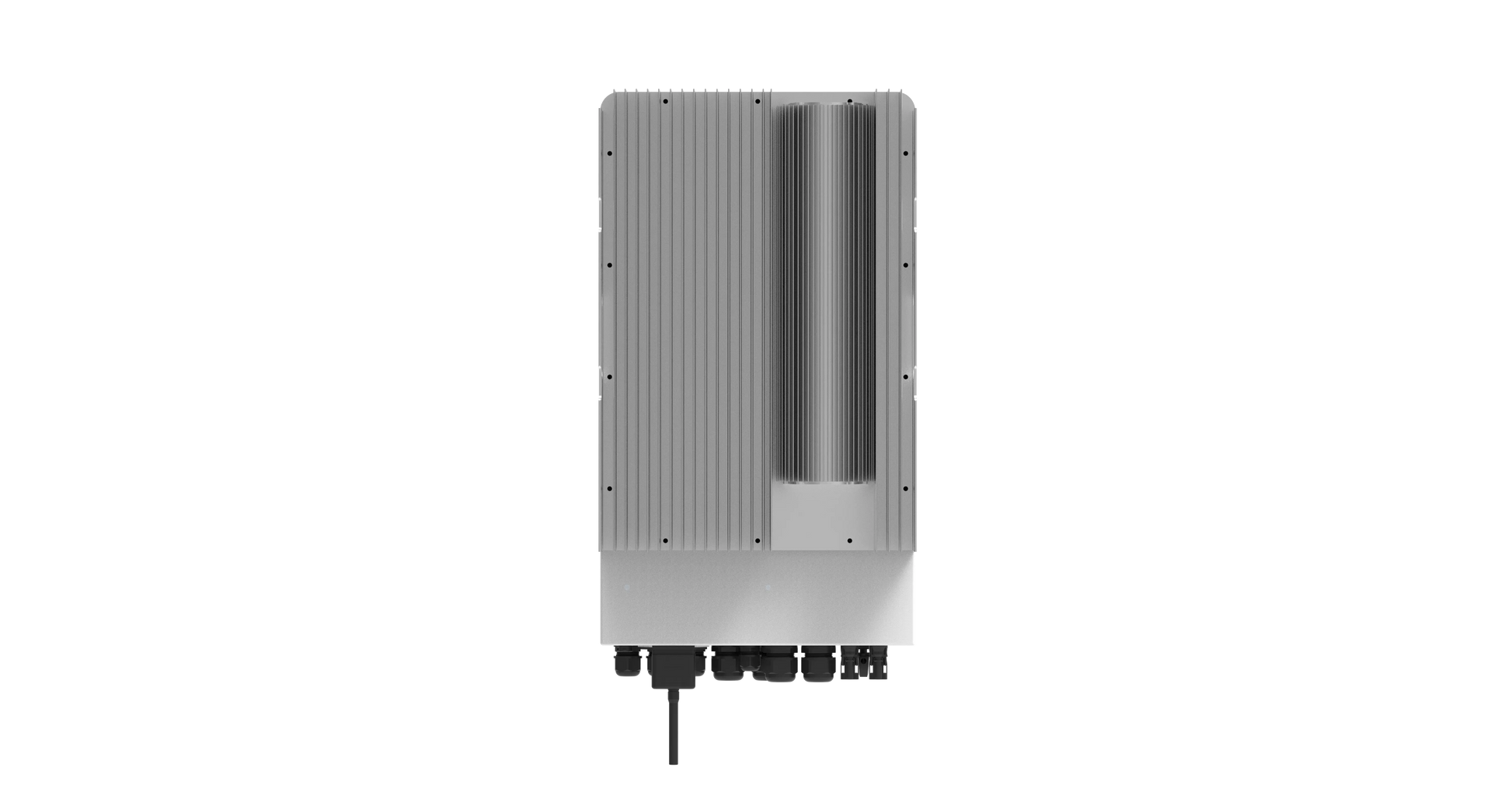It equipped with RS485/CAN port for battery communication
Enlead Energy
Deye SUN-5K-SG04LP1-EU Hybrid Solar Inverter
Deye SUN-5K-SG04LP1-EU Hybrid Solar Inverter
Couldn't load pickup availability
SUN-5K-SG04LP1-EU | 5kW | Single Phase | 2 MPPT | Hybrid Solar Inverter | LV Battery Supported
This solar hybrid inverter is suitable for residential and light commercial use, maximizing self-consumption rate of solar energy and increasing your energy impendence. During the day, the PV system generates electricity which will be provided to the loads initially. Then, the excess energy will charge the batterey via SUN 5K-SG. Finally, the stored energy can be released when the loads require it. The battery can also be charged by the diesel generator to ensure uninterrupted supply in the event of grid blackout.
- Colorful touch LCD, IP65 protection degree
-
AC couple to retrofit existing solar system
-
Max. 16 pcs parallel for on-grid and off-gridoperation; Support multiple batteries parallel
-
Max. c9harging/discharging current of 135A
-
6 time periods for battery charging/discharging
-
Support storing energy from diesel generator
TECHNICAL SPECIFICATIONS
Solar Subsidy
Solar Subsidy is provided under PM Surya Ghar Muft Bijli Yojana programme by Govt of India. This subsidy programme is monitored and executed by MNRE-Ministry of New and Renewable Energy. You may apply for solar subsidy by login to National Portal for Rooftop Solar
About Hybrid Solar System
1. Is it worth getting hybrid solar inverter?
A hybrid solar inverter can be a worthwhile investment if you need dependable backup power during outages, want to reduce electricity costs by storing solar energy for use during peak hours, or plan to add battery storage later. However, if your grid supply is stable and you don’t require battery backup, a standard on-grid inverter is a more affordable option upfront.
The value of a hybrid solar inverter largely depends on your energy goals—especially your need for energy independence, backup power during outages, and long-term savings through battery storage. Although hybrid inverters come with a higher upfront cost than standard models, they provide greater flexibility, efficiency, and advanced control features.
What a hybrid inverter does
A hybrid solar inverter integrates the capabilities of both a grid-tied inverter and a battery inverter into one system. It intelligently manages the flow of electricity among four main sources:
-
Solar panels – convert sunlight into usable electricity.
-
Battery storage – stores excess solar energy for later use.
-
Utility grid – supplies power when solar or battery energy isn’t sufficient.
-
Electrical loads – your home’s or business’s appliances and devices that consume electricity.
Key Benefits of a Hybrid Inverter
1. Backup Power:
When paired with a battery, a hybrid inverter provides seamless power to essential appliances during grid outages. Unlike standard on-grid inverters that automatically shut down for safety when the grid fails, hybrid systems keep critical loads running.
2. Energy Independence:
Hybrid inverters allow you to store excess solar energy in a battery for use at night or during cloudy weather, greatly reducing your dependence on the grid. This is particularly advantageous in areas prone to frequent power interruptions.
3. Cost Savings:
By storing solar energy and using it during peak utility rate periods, you can significantly cut down on electricity costs and make the most of your solar investment.
4. Advanced Energy Management:
Equipped with intelligent control systems, hybrid inverters automatically select the most efficient power source—prioritizing solar energy first, then battery power, and finally the grid. Many models also include user-friendly monitoring apps for real-time performance tracking.
5. Future-Ready Design:
A hybrid inverter offers flexibility for future upgrades. You can install solar panels now and add battery storage later without needing to replace the inverter, making it a smart, scalable solution for long-term energy needs.
2. What are the disadvantages of a hybrid inverter?
Disadvantages of hybrid solar inverter
1. Higher Upfront Cost:
Hybrid inverters are generally more expensive than standard grid-tied models because of their advanced features and added functionality.
2. Additional Battery Expense:
To fully benefit from a hybrid system, you’ll need to invest in batteries, which can significantly increase the total system cost.
3. Battery Maintenance and Replacement:
Batteries typically have a shorter lifespan—around 5 to 15 years—compared to solar panels. They also require ongoing maintenance and eventual replacement, which adds to long-term expenses.
4. Longer Payback Period:
Because of the higher initial investment, hybrid systems usually take longer to achieve a full return on investment (ROI) compared to basic grid-tied setups.
5. System Complexity:
Hybrid solar systems are more technically complex and must be installed by qualified professionals to ensure proper configuration, especially when setting up backup power circuits.
Share
